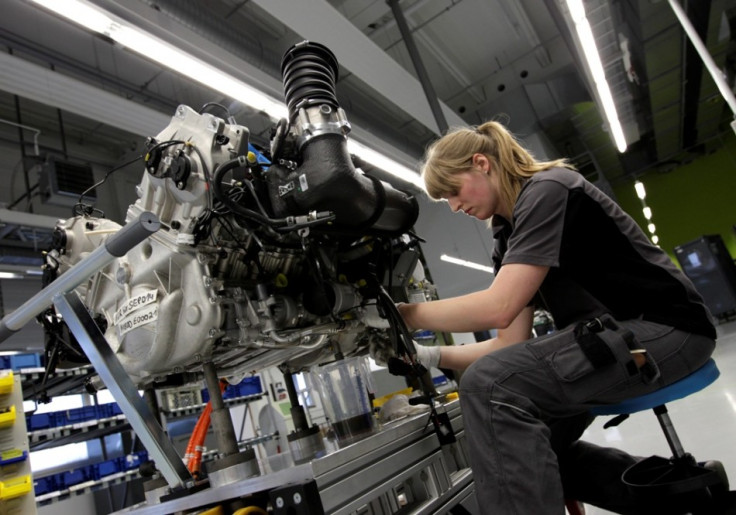Eurozone Manufacturing Sector in 'Broad-Based' Recovery

The eurozone's manufacturing sector continued to expand in August as member countries such as Germany, the Netherlands, Italy, Austria and Ireland showed improved growth, largely indicating a broad-based recovery.
The Markit Eurozone manufacturing purchasing managers' index (PMI) rose to a 26-month high at 51.4 in August from 50.3 in July. Economists expected a reading of 51.3 for the month. A reading above 50 indicates expansion in the manufacturing sector.
"Manufacturing in the euro area continued to show signs of recovery in August. Although gains are still only modest, companies reported the strongest improvement in business conditions for just over two years, with a pick up in new orders growth suggesting the upturn will be sustained into September," Markit chief economist Chris Williamson said.
Growth rates for production, new orders and new export business all rose at the fastest since May 2011, according to Markit.
Meanwhile, the sector continued to suffer from high unemployment levels in August, with job losses rising for the nineteenth straight month.
Broad-Based Recovery
PMIs rose in all major nations with the exceptions of France and Greece, where the reading was below the 50 no-change mark. The index reading was the highest in the Netherlands, followed by Austria and Ireland.
The development was in contrast to an earlier trend in which the entire eurozone data was largely influenced by that from Germany, the largest economy in the single currency region.
"What's especially encouraging is that the upturn is broad-based, with PMIs rising in all countries with the exception of France, where business conditions have at least stabilised after the steep downturn reported earlier in the year," Williamson added.
In Germany, the PMI rose to 51.8 from 50.7 in July due to stronger new order inflows and faster output growth.
Meanwhile in France, the index remained unchanged at a reading of 49.7. It was for the 18<sup>th consecutive month the index posted a reading below 50.
Nevertheless, "a broad stabilisation of new orders suggests that underlying demand is moving onto a firmer footing" in the country, said Markit economist Jack Kennedy.
'A Long Way to Go'
In the second quarter, the eurozone exited its longest recession in over 40 years, posting an economic growth rate of 0.3% over the previous quarter.
The better data from the manufacturing sector "add to growing signs of a building recovery for the eurozone economy," according to Williamson.
On the back of a number of positive economic data, the European Central Bank is expected to raise its yearly growth forecasts for the single currency region, according to economists. In June, the central bank said it expects a contraction in GDP of 0.6% in 2013, followed by 1.1% growth in 2014.
The region, however, is yet to recover from widespread job cuts. European companies remain reluctant to hire more staff as they look cut costs to boost competitiveness and offset rising oil prices. The eurozone unemployment rate remained steady at a record 12.1% in July, according to Eurostat.
The difficult situation "suggests that there's a long way to go before the recovery feeds through to a meaningful job market improvement," Williamson said.
© Copyright IBTimes 2025. All rights reserved.






















